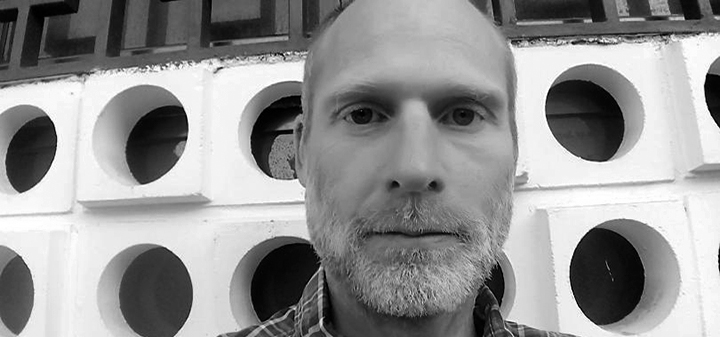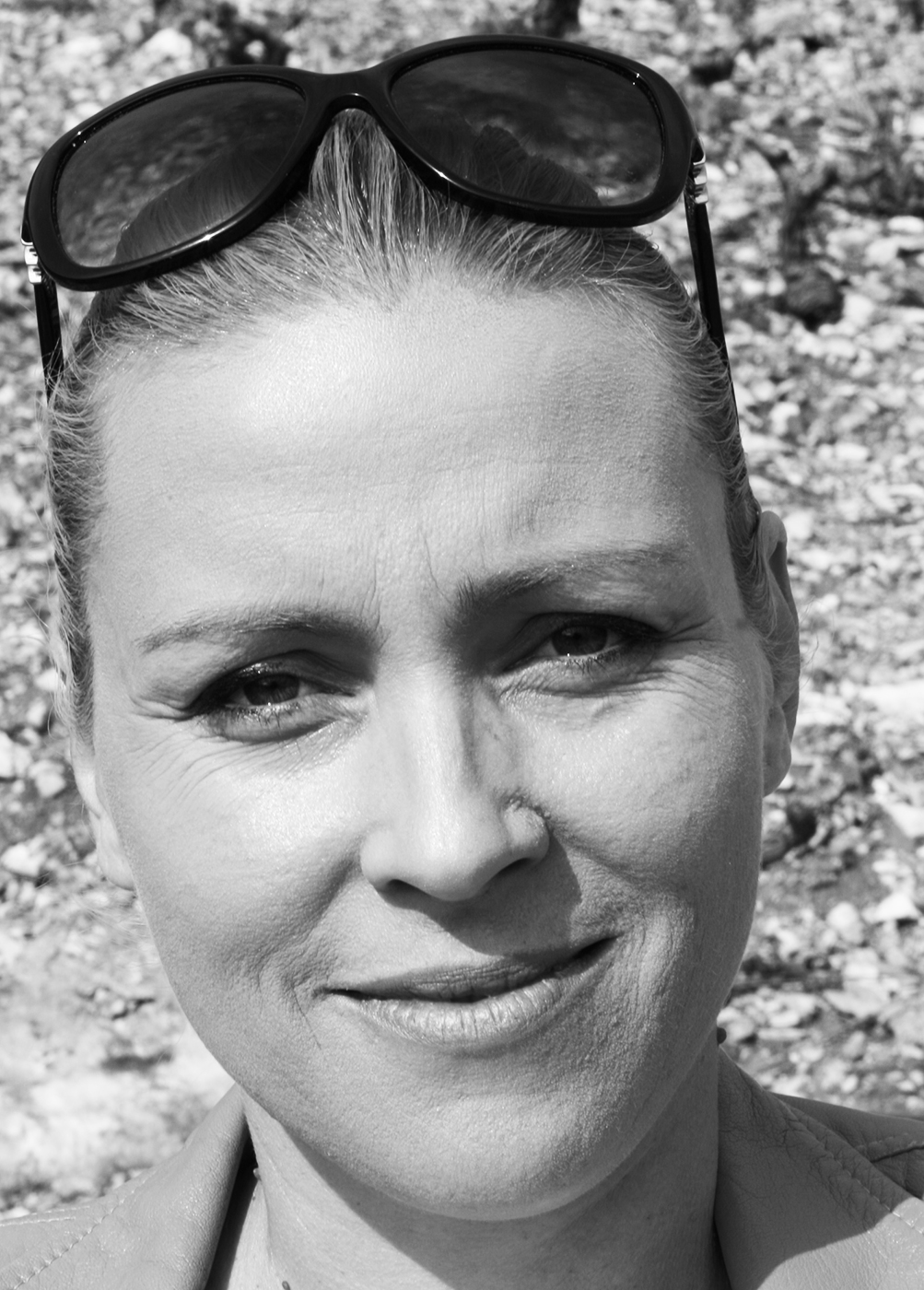
The Skaramuča Winery was founded by Ivo Skaramuča in 1992. Following the fall of communism he began commercial winemaking with vineyards that had been in the family for generations. Skaramuča is the largest owner of land in the historical Dingač vineyards on the Pelješac Peninsula - regarded as the home of Plavac Mali and one of the top grape-growing areas in all of Croatia. Dingač vineyards are south-facing, extremely rocky and have steep vertical slopes with an up to 70% incline. The Plavac Mali from Dingač has a unique richness and depth of flavor.
Ivo Skaramuča passed away in 2017 and the estate is now run by his son Igor Skaramuča and his wife Fani Marinović-Skaramuča. We speak to Fani Marinović-Skaramuča about the unique family vineyards and adapting to the changing political climates in Croatia.
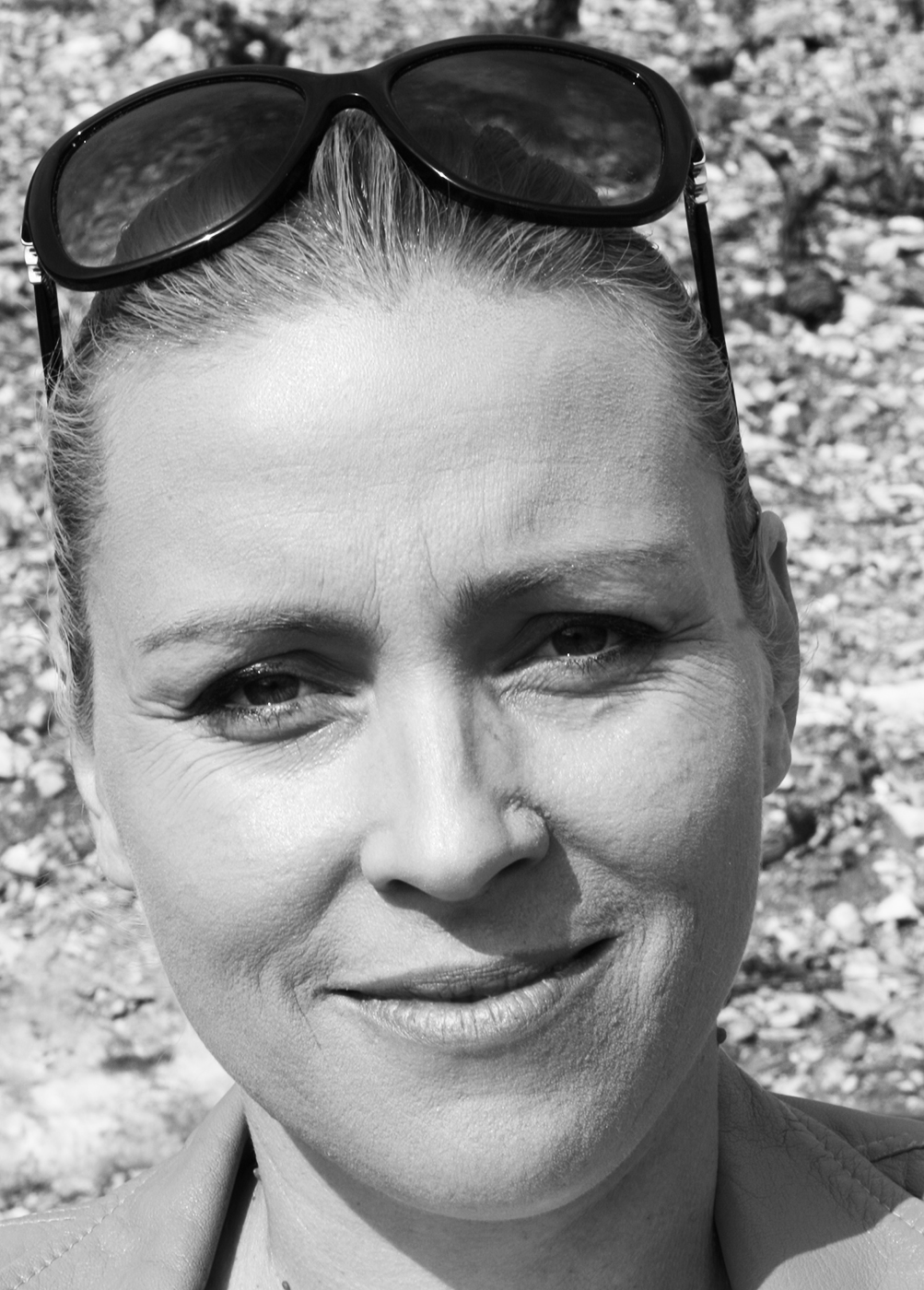 Piers Parlett: Fani, tell us about the history of the estate.
Piers Parlett: Fani, tell us about the history of the estate.
Fani Marinović-Skaramuča: Well, the property is old, hundreds and hundreds of years old. The owner of the property inherited approximately 15,000 wine plants from his parents, and it just grew.Now the property consists of 22 hectares. It's growing every year. It's privately owned andwe're buying some space, we're making new vineyards, olive trees, and it's growing. We're really working 24 hours a day.
Talk a little bit about the terroir here on the Pelješac Peninsula.
Well, the land is in Dingač, this area, the south area of the Pelješac Peninsula. It is very dry. The soil is very sandy and stony, it's limestone.
And it's the only wine plant that could grow here and grow well — the Plavac Mali which we can see all around us. The climate is also very dry. We have triple isolation, we have a lot of aromatic herbs and the plants are bushy. So we don't grow big and high, it's like a small bush. Why? in order to preserve the juices, it needs to preserve the grape and that's why they look bushy; the branches and leaves cover it from the heat and from the sun.
Is there a different characteristic in the wine that's made from those grapes, than perhaps from younger plants?
The quantity is small, very small. So when we pick the grapes, if we are lucky, we can get 30 to 40 decagrams, less than half a kilo. But the quality of that grape is superb. It's top quality and most of it we use as a special edition, the Dingač reserve, the oak or barrique wine. It's packaged in a special edition of wine of 1,000 bottles a year.
Tell us a little bit about the philosophy of winemaking and the philosophy of viticulture here.
It's very old, it's made traditionally, and with time, with technology we covered it. Normally, our philosophy is what you can see here. Handmade, a lot of work, we do everything by hand, and we have around 20 to 30 people working year round, quarterly, so three to four times a year. It's really not sprayed, we don’t use any chemicals, so we can say like organic, we're still waiting for the ECO (organic) certificate, but it's all made in the vineyard. We use all our knowledge and all our strength from the vineyard, from the land, to get the special conditions and the best grapes to take to our winery and to produce our best wines.
Talk a little bit about the winemaking process. How do you approach winemaking here?
Well, the law in Croatia has to be the same for all wine producers and normally when we pick grapes in this area, we take it to our wine factory. Then there is the normal fermentation of the grapes, plus one week to 10 days. The temperatures and all the conditions have to be made and measured all the time. Also we have a lot of contracts with companies and laboratories to measure all the conditions and all the necessary and important things to get a good wine.
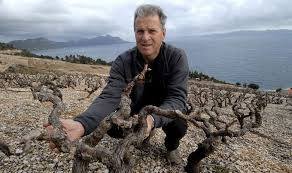
(Photo: Ivo Skaramuča)
Talk about Plavac Mali. It's a grape that's very unique to this area.
It is. The Plavac Mali is, as we all say, a cousin to our very esteemed Zinfandel. It's a very hard grape, easy to grow here, but it's hard because there is a small quantity of the grape that we can get.
The soil and all the climate elements that we have mentioned already are not helping the wine. So it's a very strong grape and the Plavac Mali is unique because the wine that we produce from the Plavac Mali is something that we cannot measure, or we cannot say it's similar, or like some other wines from other countries. It's special. It has this special terroir. You can feel the land and taste it in the wine. We always bring our guests and our clients to this area to show them the hard work.They can see the plants which are really having trouble, in order to get the product. After that they say, every Euro or every U.S. dollar is worth it. That's why we are really thankful for this grape. I'm not sure what other grapes could grow like this.
For someone who has never tasted Plavac Mali, how would you describe its flavor?
We have different kinds of wine made from Plavac Mali, so if we speak about quality wines, table wines, everyday wines, they are very soft, they are very fruity. You can even taste raisins in it, you can feel them. It's very drinkable and good with fish, seafood or with meat. The high quality wine, or top quality wine Dingač, which we also produce from the Plavac Mali, is totally different in taste. It picks the taste from the soil, from the aromatic herbs that we grow and we have a lot of them like rosemary and lavender, so you can feel all of those tastes in this wine. You can taste even salt which is brought by the wind and it's a little bit stronger. You can feel the skin, the grape skin in the wine, you can feel it. It's a little bit stronger and, of course, because of all those conditions and climate, it is a little bit harder than the other ones.
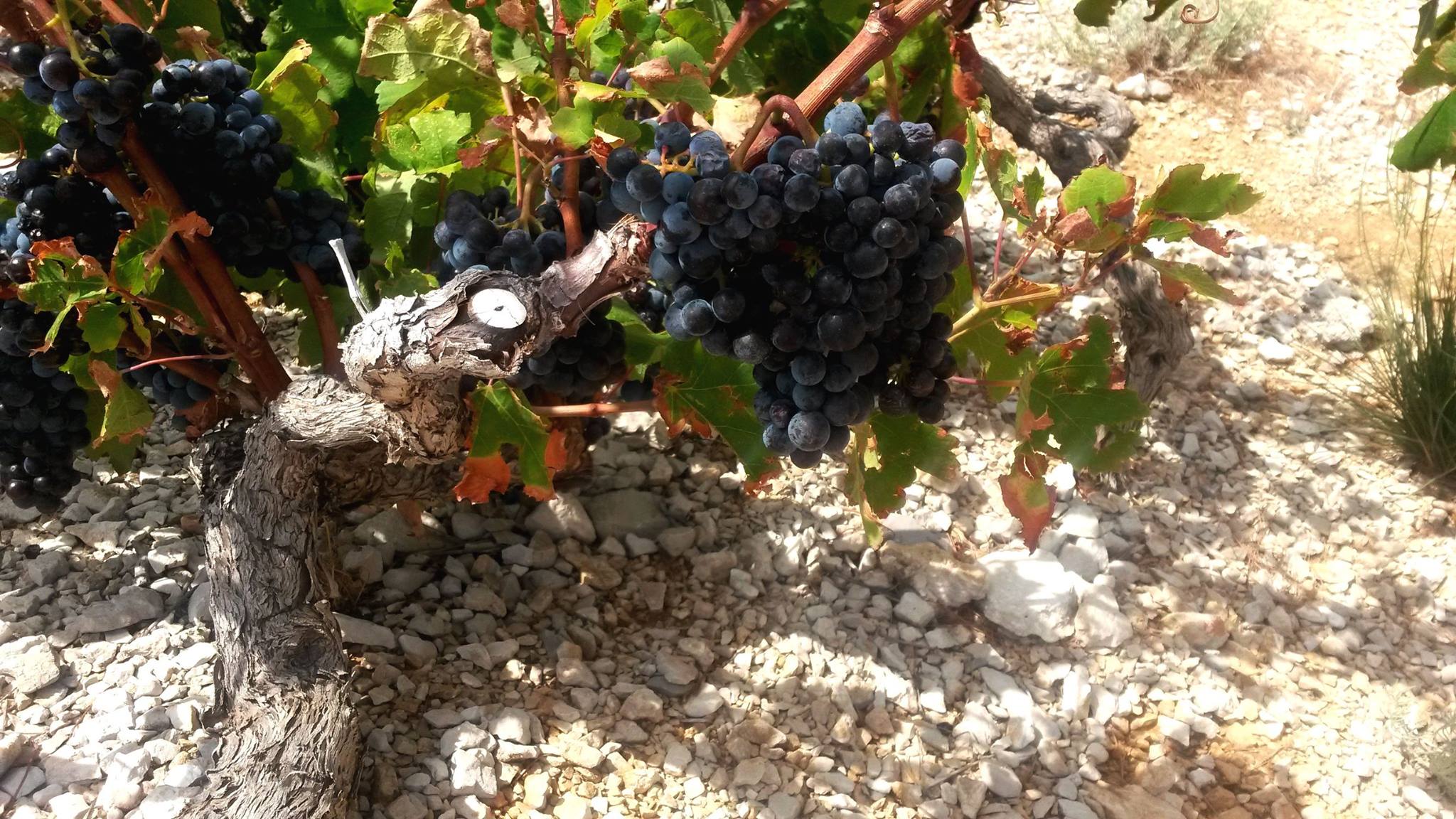 It's a very, very good combined with red meat, with grilled meat, and with goulash. Sometimes people say it's like a winter wine, it's a little bit stronger, you can have one glass or two and it's enough. It's a little bit strange because there are lots of different kinds of wine all over the world. You can drink the whole bottle and you don't feel it so strong. The other wine that we produce, this is the top quality wine, also Dingač, but the special edition of Dingač which spent one year in an oak barrel. It's a soft oak, it's very tasty and you can feel pepper and chocolate inside. It's not a pepper, it's not chocolate, it's the climate, it's the sea, it's maybe near the sun and the sea, it makes some differences.
It's a very, very good combined with red meat, with grilled meat, and with goulash. Sometimes people say it's like a winter wine, it's a little bit stronger, you can have one glass or two and it's enough. It's a little bit strange because there are lots of different kinds of wine all over the world. You can drink the whole bottle and you don't feel it so strong. The other wine that we produce, this is the top quality wine, also Dingač, but the special edition of Dingač which spent one year in an oak barrel. It's a soft oak, it's very tasty and you can feel pepper and chocolate inside. It's not a pepper, it's not chocolate, it's the climate, it's the sea, it's maybe near the sun and the sea, it makes some differences.
Talk a little bit about these hills. I mean, these are very steep.
It's very steep here.
Even walking up here is pretty tricky.
It was really hard to build some roads. Why did we make the roads? It's difficult to carry the boxes with grapes all the way. It was also difficult for the donkeys 100 years ago, so we had to build some roads so that cars or minivans could deliver those boxes directly to our winery. The soil is all covered with stones so it was difficult to dig it and to build some of the roads, and different kinds of walls.
As you can see, we have reproduced the old walls as they were 100 years ago, it's stone. It's all handmade and we didn't use any concrete. We are trying to preserve as much tradition as we can, because this is something that you don’t see everyday, everywhere. There are lots of places where the vineyards are very big, very straight, with 20 hectares of a straight line, so you can see it. You can visit it by car or by bike. This is a little bit different, difficult to visit any way, actually only by foot.
We are trying to return the vineyards to their former proud past, as they were originally built. It's difficult to build it new or modern because the hill is so steep. If you decide to plant a vineyard here it costs a lot of money and human effort.
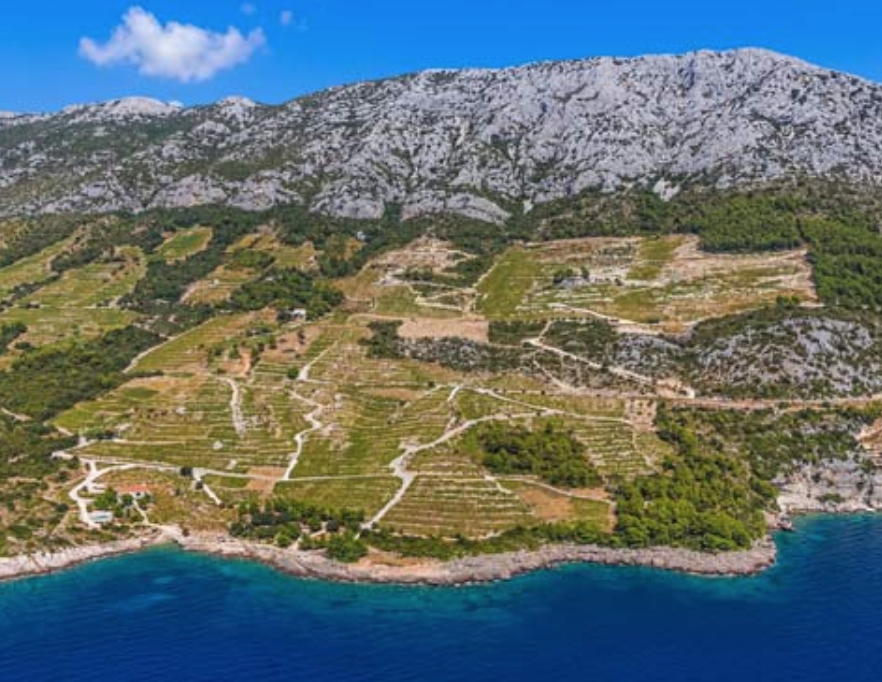 Fani, talk a little bit about the Croatian wine industry. It's not one of wine areas that is extremely well-known internationally, but winemaking has been around for quite a long time.
Fani, talk a little bit about the Croatian wine industry. It's not one of wine areas that is extremely well-known internationally, but winemaking has been around for quite a long time.
Yes. It's been here forever. In the beginning when people first arrived and started living here, they produced it for themselves, and to export to Greece and to Rome. So it's existed for a long time. But Croatian wines are very famous and very familiar. When people from the US or England or France come here, they adore our wine. They like to take it home. But if they ask us, "Where can we find it?", somewhere in UK or Germany, it's difficult to say because thewineries in Croatia would have to work together. Not just one producer or just one company, it should be done as a state or as a big firm acting together, they should develop marketing techniques, they should make some inquiries, contact some distributors to send their wine. So it's very difficult to reach those markets. It's difficult to get the chance because there are lots of wines all over the world, really good and quality wines.
Our wine is special, it is something different than the others, but I think we should all work together helping each other to try to get our wines out of Croatia to other markets. For now we have a lot of customers in the European Union and it's very easy to organize. But is difficult to reach all the other countries over the world.
Take a 360-degree virtual reality tour of the Skaramuča Winery in Croatia. This experience only works in certain browsers including Google Chrome. You can also experience the VR tour directly on Youtube.
Fani, can you discuss the evolution of the wine industry from communist rule to where it is today? Formerly there were big cooperatives making a lot of bulk wine, and now there's a focus on indigenous varieties. And, a focus on quality winemaking. How have things evolved?
The private producers are learning from the world, from the other markets. We are using much more technology than was used before. It was not allowed. Then it was not possible to learn something new. It was like a closed room. Now we are trying to become much more knowledgeable and learn as much technology as we can. We're learning, we're new, we're young. We have been producing wine for a long time, but always in life, it’s important to learn something new. The Croatian winemakers are making new rules. Their borders are not just quality wine and top quality wine. They are experimenting with different kinds of wines. We are trying to experiment with different kinds, different sorts of wine plants. We are trying to grow them, see if it's working. If it's not then we can just move on and try something else.
We are also trying to experiment with different kind of grapes and wines to combine them, for example, like making a cuvée wine. It's changing, it's growing. It's modernizing, but we still need a lot of help from outside, and lots of help from the people who have knowledge and technology and everything else. In technology something new is happening every day, and we are learning every day.
Wine is a very specific industry and I can't say it's an industry, it's a passion. If you have passion, we have people working and creating wine and they have passion for it. If you just do it automatically, because you need to, as it was done before, 20, 30, 50 years ago, then it's just what it is. But now people are creating wines because they have the passion and the knowledge. And if they don't, they will learn. There is a possibility now in Croatia to learn something new.
Photography and videography by Piers Parlett
For more on Croatian wine check out Croatia: A Land of Wine Stories by Zeljko Garmaz
